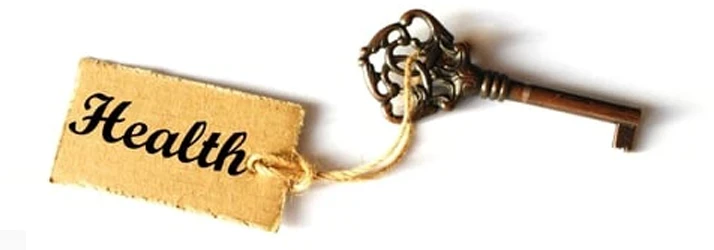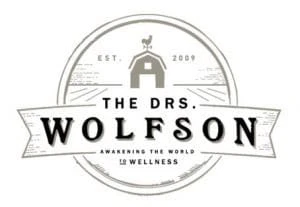What Happens to Meat When It's Grilled in Livonia MI?

Read on to learn more about the health risks in Livonia MI associated with grilling.
Great Article by Dr. Mercola
Memorial Day weekend is often the start of outdoor grilling season. However, depending upon how close you live to the equator, you might be grilling outdoors all year long. Perfect weather, good friends and an outdoor barbecue grill may be your recipe for one of the joys of summertime.
While you may have discovered there is a growing mountain of research pointing to grilling and barbecuing meat as one way of ingesting cancer-causing chemicals, there are ways of enjoying your summer grilling that reduces the potential for trouble.
Many living in the U.S. find that grilling satisfies their need for good taste, and for keeping the number of pots and pans to a minimum. Some people find it personally satisfying to cook over an open fire, and others just enjoy entertaining friends and family at home.
Whatever your personal reason for using the outdoor grill, it's important to understand the risks involved and how to reduce them.
It's All About Chemistry
Cooking is a form of chemistry. As you apply heat to different types of organic material (food), you get a chemical reaction you find either pleasing or distasteful. Meat, vegetables and fruit go through a unique process specific to the chemicals and nutrients found in them.
Different types of cooking produce different types of chemical reactions. This is why foods cooked in the oven will taste different than those sautéed on the stove or grilled over an open flame.
The addition of spices and marinades also changes the chemicals present during the cooking process and therefore the chemical reactions occurring while you cook.
Unfortunately, grilling gives you both a distinctive flavor combination in the meat and vegetables, as well as changes to the foods that may produce cancer causing chemicals.
Three important chemicals potentially produced during grilling are heterocyclic amines (HCAs), advanced glycation end products (AGEs) and polycyclic aromatic hydrocarbons (PAHs).
Heterocyclic Amines
These chemicals are formed in muscle meat when it's cooked at high temperatures. Even cooking at high temperatures over the stove can cause the formation of these chemicals in the meat.2 In experiments in laboratory animals, HCAs are mutagenic.
This means the chemicals cause changes to the DNA in the lab animals, increasing their risk of cancer. HCAs are not found in appreciable amounts in other cooked foods, other than meat cooked at high temperatures. Once you eat the meat, the HCAs are metabolized in your body by specific enzymes.
Researchers have found that this group of enzymes has varying degrees of activity in different people. This may be relevant to how much or little the HCAs increase your specific risk of cancer.
The amount of HCAs appear to be dependent on the type of meat, how well-done it is cooked and the temperature used to cook the meat. For example, researchers have found that well-done meat has 3 1/2 times more HCA than medium-rare meat, and fried pork has more than fried beef or fried chicken.
To date, there have been more than 10 different HCAs identified from cooking meat and fish. When HCAs have been fed to rodents they developed cancer in multiple different organs, including the colon, breast and prostate.
Advanced Glycation End Products
AGEs, also known as glycotoxins, are present in your body and in the meat you eat. These are highly oxidant compounds linked to increased inflammation and oxidation stress in your body.6 Damage by AGEs has been associated with diabetes and cardiovascular disease.
Based on study findings, dry heat from grilling or broiling may increase the formation of AGEs between 10- and 100-fold greater than in uncooked foods. Animal meat, rich in fat and protein, is generally rich in AGEs.
Researchers found a reduction in the formation of new AGEs cooking with moist heat, using shorter cooking times, cooking at lower temperatures and using acidic ingredients.
The formation of AGEs in your body is a normal part of metabolism. The addition of more AGEs from the food you eat increases the likelihood the amount of circulating AGEs will become pathogenic. Grilling, broiling, frying and searing foods increases the formation of AGEs in the meat you eat.
Studies have found mice that ate diets rich in AGEs suffered from kidney disease, diabetes, atherosclerosis and slow wound healing. Mice fed diets low in AGEs experienced a significantly reduced risk of the same health issues.
Your body does not get rid of or digest these end products easily. Instead, they are stored in your organs, and over time cause damage.
A database containing foods and the associated AGEs shows fats have a low amount of AGEs per serving as compared to muscle meats, such as steak, chicken and frankfurters. Lamb and eggs have relatively less than other meats.
Polycyclic Aromatic Hydrocarbons
PAHs don't originate in the meat, but rather from the wood, gas or coal you use for the fire. They are also formed when fat from the meat drips on the grill and creates smoke. The compound is in the smoke and is deposited on anything within reach.
This means the PAHs will cling to the meat and your clothing, and you will inhale them as you stand over the grill. Exposure is known to cause skin, liver and stomach cancers in lab animals.
However, the story of PAHs doesn't stop there. When the PAHs from the fire mingle with the nitrogen from the meat you're cooking, nitrated PAHs (NPAHs) are formed. These are even more carcinogenic and one reason that grilling meat may be hazardous to your health.
Cooking that exposes the meat you're eating to smoking or charring (those dark grill marks on the meat) may increase your consumption of PAHs.15 Animals exposed to PAHs in their diets developed leukemia and cancers of the digestive tract and lungs.
Beware of the Hazards of Brush Wires
Dangers inherent in outdoor grilling are not limited to cooking the meat. University of Missouri School of Medicine researchers published a study identifying more than 1,600 injuries between 2002 and 2012, which have occurred after individuals cleaned their grill with wire bristle brushes.
Loose bristles may fall off your brush, adhere to the grill and end up in your next meal. When eaten, they can lead to injuries to your mouth, tonsils and throat. The most common injuries reported during this study were to oral cavities, throat and tonsils. Some injuries required surgery for treatment or repair.
Lead physician and researcher, Dr. David Chang, estimates the number of injuries is actually higher since his study did not include injuries treated at urgent care centers or other outpatient settings. While injuries to the mouth and throat are significant, Chang also states:
"If the bristle passes through those regions without lodging itself, it could get stuck further downstream in places like the esophagus, stomach or the intestine.
The biggest worry is that it will lodge into those areas and get stuck in the wall of the intestine. The bristles could migrate out of the intestine and cause further internal damage."
Tips for Safer Grilling in Livonia MI
You don't have control over the way food is grilled at restaurants or your friend's house. However, you can make changes at home to reduce your potential for ingesting high levels of HCAs, PAHs or AGEs, all of which are known carcinogenic chemicals resulting from grilling.
Various herbs and spices can help flavor your food. The following have also been found to help reduce the amount of HCAs and AGEs produced when grilling. By adding them into your burger patties or using them as a rub, you can decrease the risks associated with this popular cooking method.
- cherries
- rosemary
- mustard
- cider vinegar
- black pepper
- garlic
- thyme
- cloves
- cinnamon
- paprika
- onion
- virgin olive oil
- apples
- oregano
- ginger
Other ways to decrease the health risks associated with grilling include the following strategies:
- Trim the Fat
When fat drips to the open flame or on the grates, flare-ups can spread PAHs onto your clothing and your food. Remove the skin from chicken, trim the fat from steaks and skip the fatty sausage and ribs over the grill. Choose leaner cuts of meat for the grill. - Skip the Char
Those crisscross grill marks you work to achieve are just another indication of a build-up of AGEs and HCAs. Instead, flip the meat frequently at a lower temperature, cook the meat using indirect heat (not directly over the flame) and remove any burned or charred meat before eating. - Choose Your Color Carefully
To reduce the amount of HCAs and AGEs in the food, choose a medium-cooked meat over one that's well-done. Use a meat thermometer to check the temperature of the meat for safety. Steak should be cooked to 145 degrees Fahrenheit (F), hamburgers to 160 degrees F and chicken to 165 degrees F. Place the thermometer in the center of the meat, away from bone, fat or gristle.
- Use Marinade and Rubs
A tasty marinade helps improve your cooking in a number of different ways. The marinade reduces the amount of fat drippings into the grill, reducing the amount of smoke and PAHs. Acidic marinades reduce the amount of HCAs produced when cooking.
They begin to break down the meat, tenderizing it, and the flavors are fun to experiment with. A mixture of one part lemon juice to two parts onion and garlic was found to reduce the production of HCAs with grilling up to 70 percent. - Avoid Barbecue Sauces
Sauces made with tomato and/or sugars will double and sometimes triple your ingestion of toxic chemicals after just 15 minutes of cooking. - Soak the Meat in Beer
Marinating your meat in beer first can help lower amounts of PAHs in the food. Darker beers produced the least amount of PAHs in the meat - up to 68 percent less with a black beer marinade. - Pre-Cook Your Meat
Precooking inside removes some of the fat that may drip into the flame and reduces your cooking time on the grill, also reducing the amount of time the food is exposed to toxins. Less time at high heat reduces the number of AGEs developed in the meat during cooking. - Add Fresh Vegetables
High in antioxidants and phytochemicals, vegetables help combat the damaging effects of grilling and help reduce the portion of meat you may eat. - Use Caution When Cleaning Your Grates
Clean the grill to avoid cooking on leftover grease and build-up of chemicals, but use caution when cleaning your grates with a wire brush. Safer options include nylon-bristle brushes or balls of tin foil. Also inspect the grates prior to use and your food before eating to ensure bristles are not stuck to the food.
OFFICE HOURS
Monday
9:00am - 1:00pm
3:00pm - 6:30pm
Tuesday
Closed
Wednesday
9:00am - 1:00pm
3:00pm - 6:30pm
Thursday
9:00am - 1:00pm
3:00pm - 6:30pm
Friday
Closed
Saturday
8:30am - 11:00am
Kramer Chiropractic
20414 Farmington Rd
Livonia, MI 48152
P: (248) 615-1533
F: (248) 615-9068



